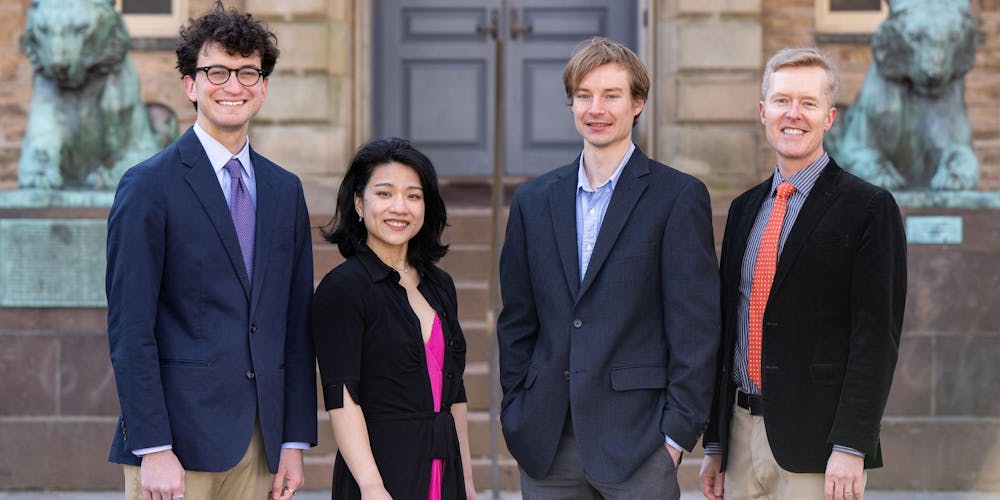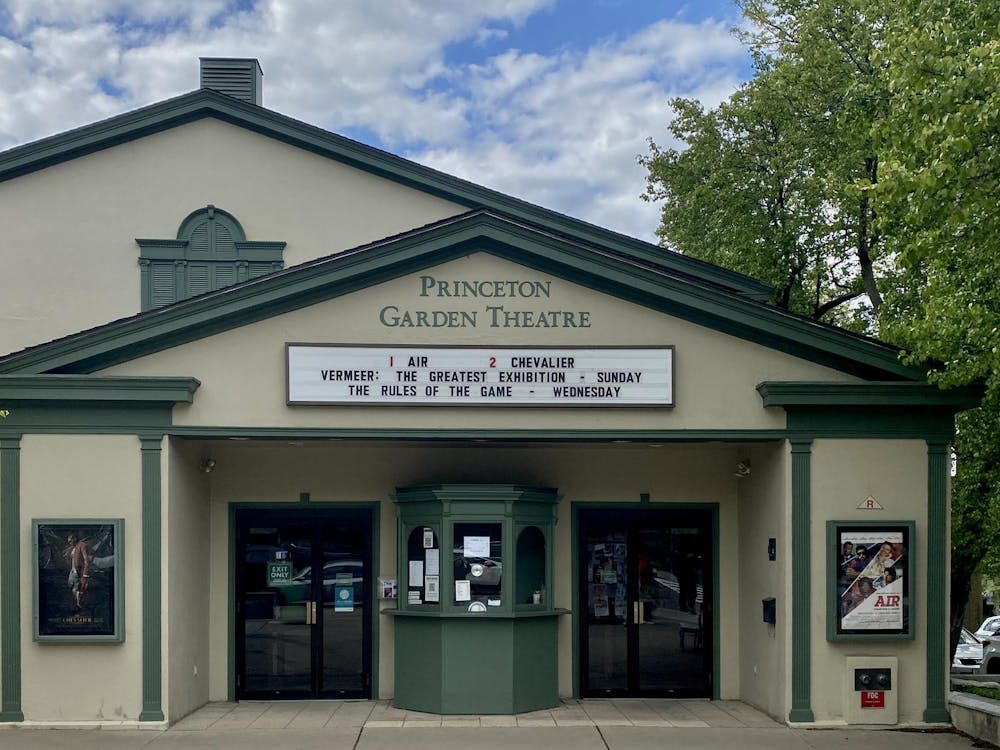Erin Kado-Fong, Zachary Teed, and Spencer Weinreich were named the winners of the 2021-22 Porter Ogden Jacobus Fellowship, the University’s top award for graduate students. They were honored at Alumni Day on Feb. 19.
The fellowships are given to Ph.D. students in the humanities, social sciences, natural sciences, and engineering whose “work has exhibited the highest scholarly excellence,” according to the press release. The award funds the students’ last year of study at the University.
Coming to the University in 2017, doctoral student Kado-Fong studies astrophysical sciences. As an undergraduate at Tufts University, she studied astrophysics with a minor in economics.
Kado-Fong’s dissertation “From Galactic Outskirts to Central Star-Forming Regions: a Census of Stellar Assembly in Dwarf Galaxies” studies the internal and external processes of dwarf galaxies, galaxies that have a total mass in stars less than around one percent of our Milky Way.
“They’re very important systems if we want to understand this overall picture of how galaxies form and assemble,” she said in an interview with The Daily Princetonian. “You can think of them as this key testing ground for physics both at smaller scales, like star formation physics, as well as at larger scales, more along the lines of cosmology.”
At Princeton, Kado-Fong was a volunteer observer and organizer at Peyton Observatory. This fall, she will begin a postdoctoral position at Yale University. She told the ‘Prince’ she feels grateful for the community she found in Princeton’s astrophysical science department.
“The department of astrophysical sciences is a very close-knit and friendly atmosphere,” she said. Kado-Fong is particularly appreciative of the size of her department. She explained that it is small enough to create a welcoming community but large enough to still engage in a variety of interesting research.
“[The] department has really been a great resource throughout my time here,” she continued.

Astrophysical sciences professor Jenny Greene commended Kado-Fong for her intelligence and dedication.
“Erin is a joy to work with. I have learned more from her than the other way around,” Greene wrote in an email to the ‘Prince.’ “She is brilliant, exceedingly capable, and interested in solving hard problems. I’m so pleased that she got the Jacobus, but certainly feel she deserves it.”
As a doctoral student, Teed studies computer science, coming to Princeton in 2018 after beginning his graduate education at the University of Michigan with his advisor Jia Deng. Deng left the University of Michigan and is now an assistant professor of computer science at Princeton, where he continues to serve as Teed’s advisor. Teed received his bachelor’s degree in computer science from Washington University in St. Louis.
“Zach is a one-of-a-kind Ph.D. student. He has the uncanny ability to quickly find ingenious solutions to extremely challenging problems. I have learned to set very high expectations for each of his progress updates, but he still manages to exceed them every single time,” Deng wrote to the ‘Prince.’

“It has been an absolute privilege to work with him, and I am very happy and proud that he has received this prestigious fellowship, which has empowered him to make even bigger contributions to his research field,” Deng continued.
Teed’s dissertation focuses on how to create algorithms to recover 3D information from video.
“One of the most fundamental problems in video understanding is being able to estimate motion between video frames,” he wrote in an email to the ‘Prince.’ “However, early on in my Ph.D., I discovered current methods for motion estimation weren’t really working as well as they should.”
“Once I had a better system for estimating motion, I was able to build more complex systems which can build 3D models of their environment in real-time,” he wrote.
After Princeton, Teed will be working as an autonomy engineer at Skydio, a company that builds autonomous drones used for capturing videos. He said he feels greateful for how the Jacobus fellowship affirmed the research he has carried out over the past several years.
“The award gave me the chance to reflect on my past four to five years of research. Progress often felt really, really slow, but over the course of many years the pieces started to come together,” he wrote. “I feel like I am starting to get close to the goals I had when I set out. Although, there is still a lot I want to do in the next few months before graduating.”
Doctoral student in history of science Spencer Weinreich came to Princeton in 2017. Weinreich received a bachelor’s degree in history from Yale and then went on to obtain an M.Phil. in theology from Oxford.
Weinreich studies the history of solitary confinement from the late Middle Ages to the 19th century. His dissertation “Slow Tampering: A History of Solitary Confinement” dives into why solitary confinement has persisted over time and amplifies the voices of those who have been affected by it throughout history.
“[It] is really shining a light on how ubiquitous solitary confinement is and has been,” Weinreich said in an interview with the ‘Prince.’ Weinreich explained that his research goals involve trying to bring contemporary notions of the carceral system into conversation with early modern, medieval, and ancient history.
At Princeton, Weinreich taught world history through the Prison Teaching Initiative, which showed him the impact of his research. From 2022 to 2025, he will be a junior fellow in the Harvard Society of Fellows.
“My work as a scholar of the prison is rooted in the human reality of mass incarceration with which we live and which is destroying so many lives and so many communities,” he said. “I think that academia and scholarship will go seriously morally wrong when we lose sight of the human reality of what we're studying.”
Anthony Grafton, the Henry Putnam University Professor of History, expressed excitement at the prospect of Weinreich being honored with the award.
“In short, Spence is one of the very best of our wonderful graduate students: a scholar who reads many languages and deciphers crabbed scripts, and a deeply humane person who uses what he learns to make us think about our own world and how the past has shaped it,” Grafton wrote to the ‘Prince.’ “It has been a pleasure to work with and learn from him.”
Naomi Hess is a news editor emerita who focuses on university policy and alumni affairs. She can be reached at nihess@princeton.edu or on Twitter at @NaomiHess17.








